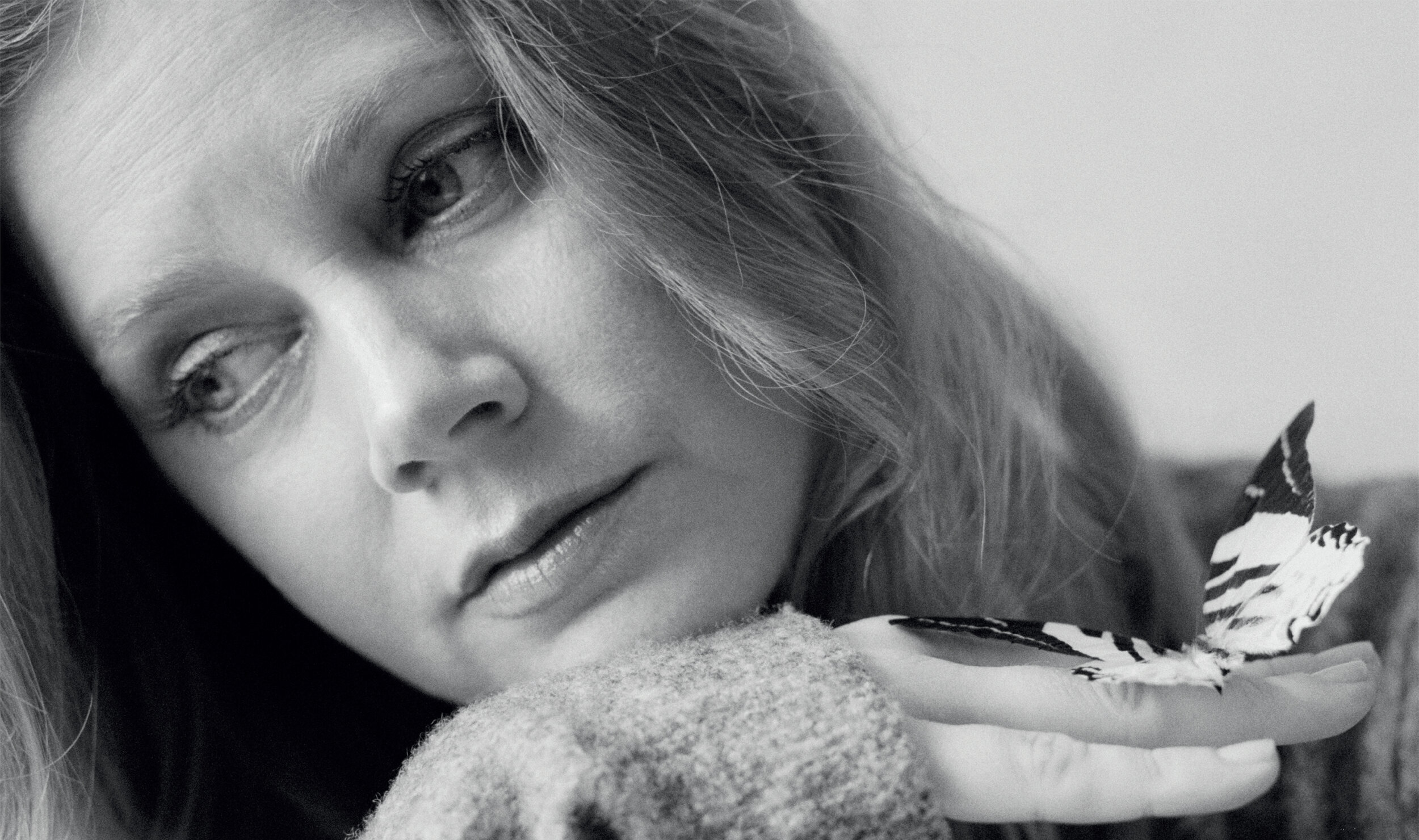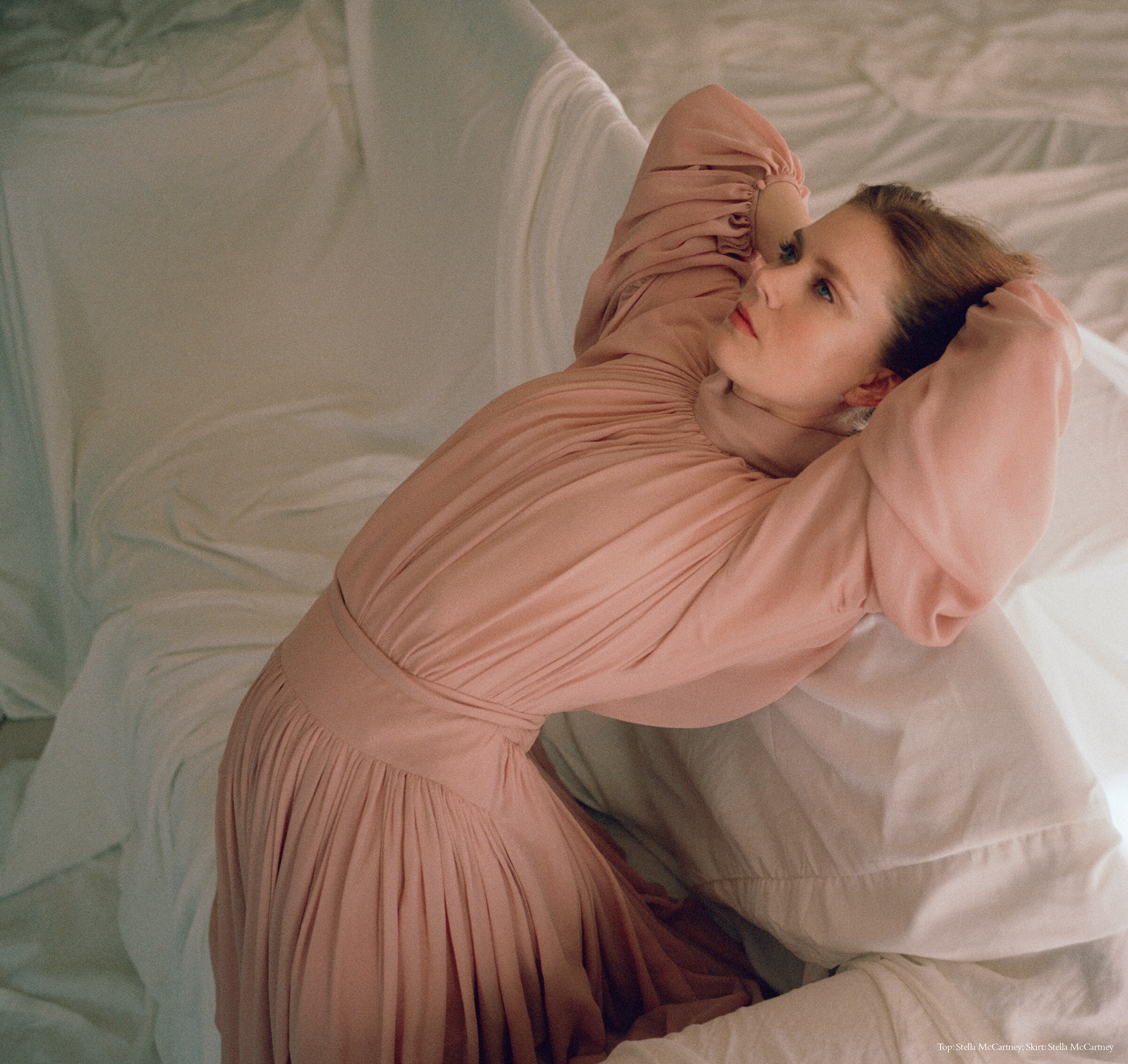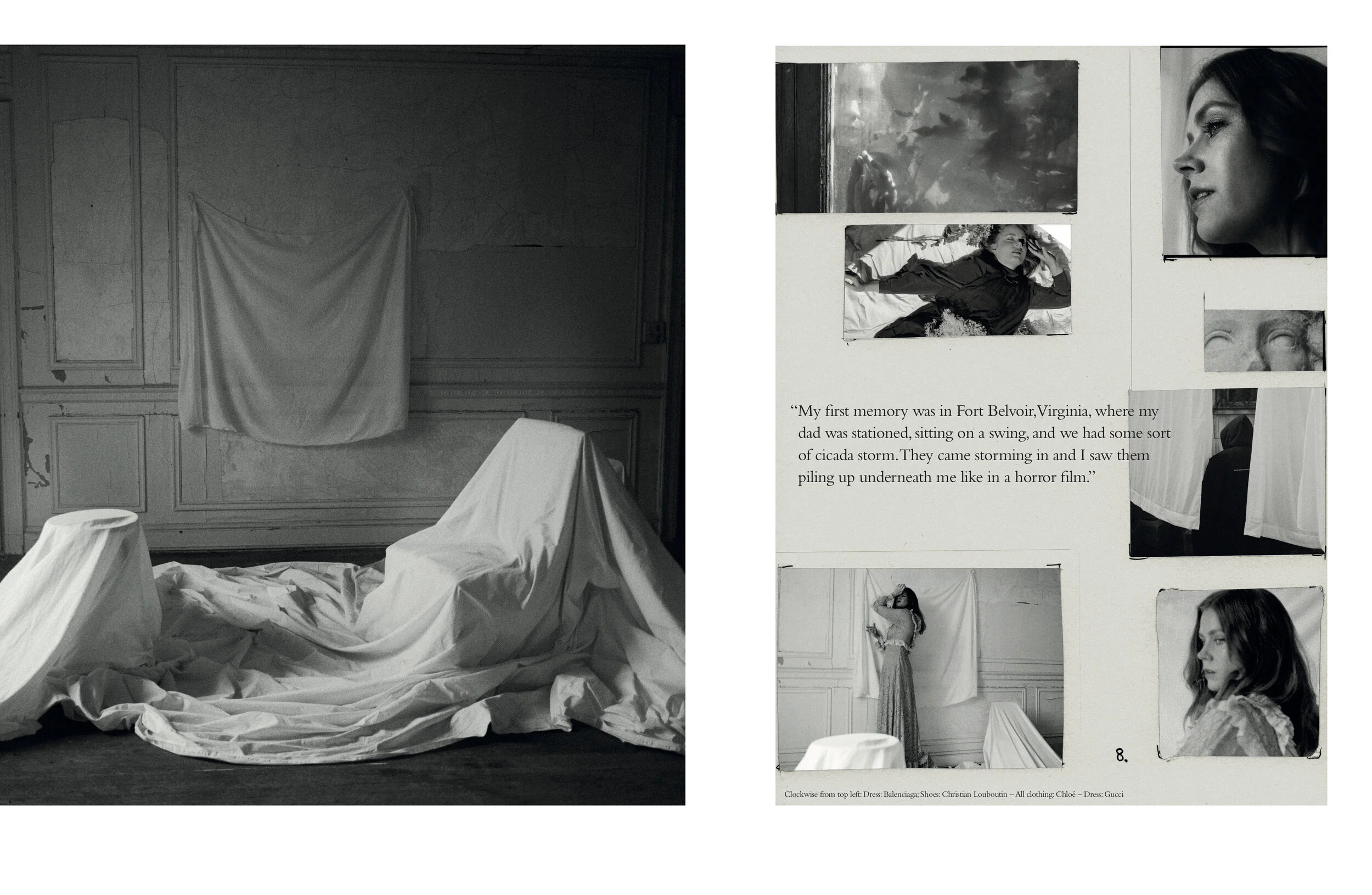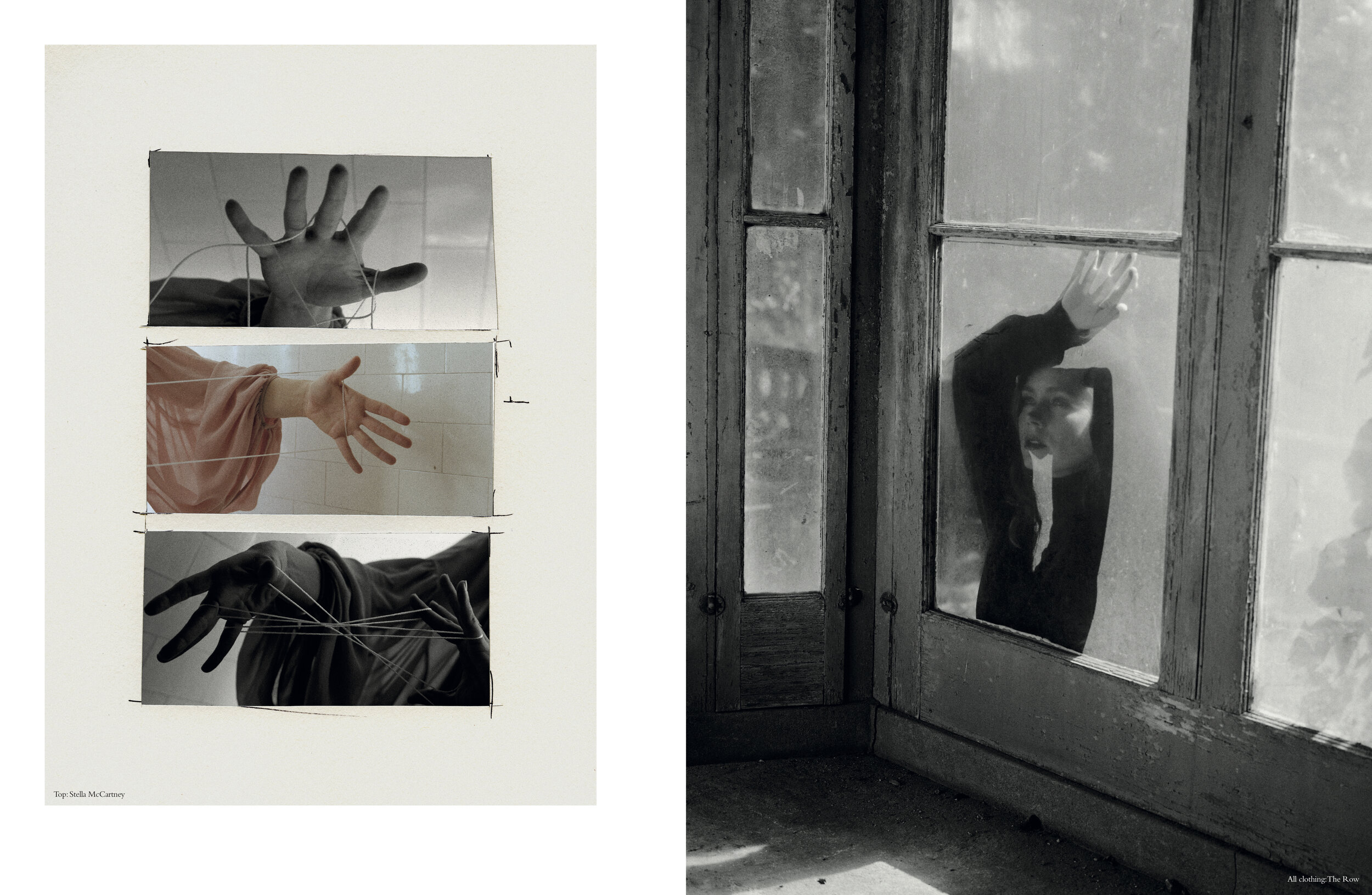AM:What’s a lot?
AA: I think the most is around twenty-four.
AM: That’s a lot. I mean I can say this out loud because he is clearly one of the best directors working, so I don’t think he is going to take offense, but I’ve heard Fincher will occasionally do sixty or seventy takes.
AA: I’ve heard that too. It would be a curious experiment.
AM:Ha,I am going to do it to you the next time we work together and not say a word about it, just 100 takes and keep saying one more.
AA:You know what’s interesting about Jean- Marc Vallée, he doesn’t do a lot of takes of individual camera shots but he does the same scene from beginning to end. He doesn’t do pick-ups, he doesn’t say now from this point. So let’s say you’re shooting a nine-page scene, you’ll do that scene all day long.Which is like the equivalent of doing 100 takes.
AM: Oh my god.
AA:Yeah, that has its own interesting thing. And sometimes you’ll just do two takes. Like in Sharp Objects, the scene where I call my boss — have you seen the show?
AM: We’re in post on Vice, the movie with you playing Lynne Cheney, so I have a long list of things I need to catch up, but I saw the first episode which blew me away and you were incredible in it. I have it all queued up and ready to go as soon as I’m done with this movie.
AA: Got it. I’ve seen all of Succession and I love it desperately.
AM: Oh you just threw that in my face.
AA: Ha, perfect, I’m glad it worked. No, I was trying to compliment you!
AM: Will Ferrell told me he did a Woody Allen film nine years ago, and there is a whole different set of baggage to that
sentence which I won’t get into for this, but basically he said that Woody Allen does two takes, three takes, and it went like that for days.And all of a sudden him and Carell were in a scene and there were forty-two takes. And Will kept saying,“Is something wrong?” And Allen was like no let’s just do another one. They kept asking for notes and Allen didn’t give them any.Then it went right back to two takes, two takes. Then a week later he was told they’re reshooting the scene they did forty-two takes of, and went and did thirty-eight takes of that, but never without any explanation at all.
AA: That’s so fascinating. Everyone has a process I suppose.
AM: I’ve love the neutral, non-judgmental square you landed on with that one. Everyone has their process, translation: that’s the craziest thing I’ve ever heard.
AA: Ha, well if anyone met me on the set of Vice, they would think I was out of my mind.
AM: Oh yeah.You know, I saw you were a producer on Sharp Objects.
AA: I was.
AM: Have you produced before?
AA: I haven’t. That was the first one but I want to do more of it. I really, really like it.
AM: So tell me about that as there are ten different things producing can mean.There’s budget, line by line producing, there’s the creative oversight, acquiring the property. Were you involved in the early days, with casting?
AA:Yeah, I brought on Jean-Marc Vallée. We had been working on a Janis Joplin project together and it wasn’t moving forward. But we had this long relationship over the course of a year working on this project and I really felt he understood the complexities of female depression, the complex nature of women. So I brought him to the table and then I really loved being a part of casting, because I like reading with people and that was really helpful as well.
AM: The casting on Succession, I really enjoyed being in on that, especially with a series, and I know yours was a limited series. It’s so cool that you get to help set that world. What else were you going to say, what other parts?














